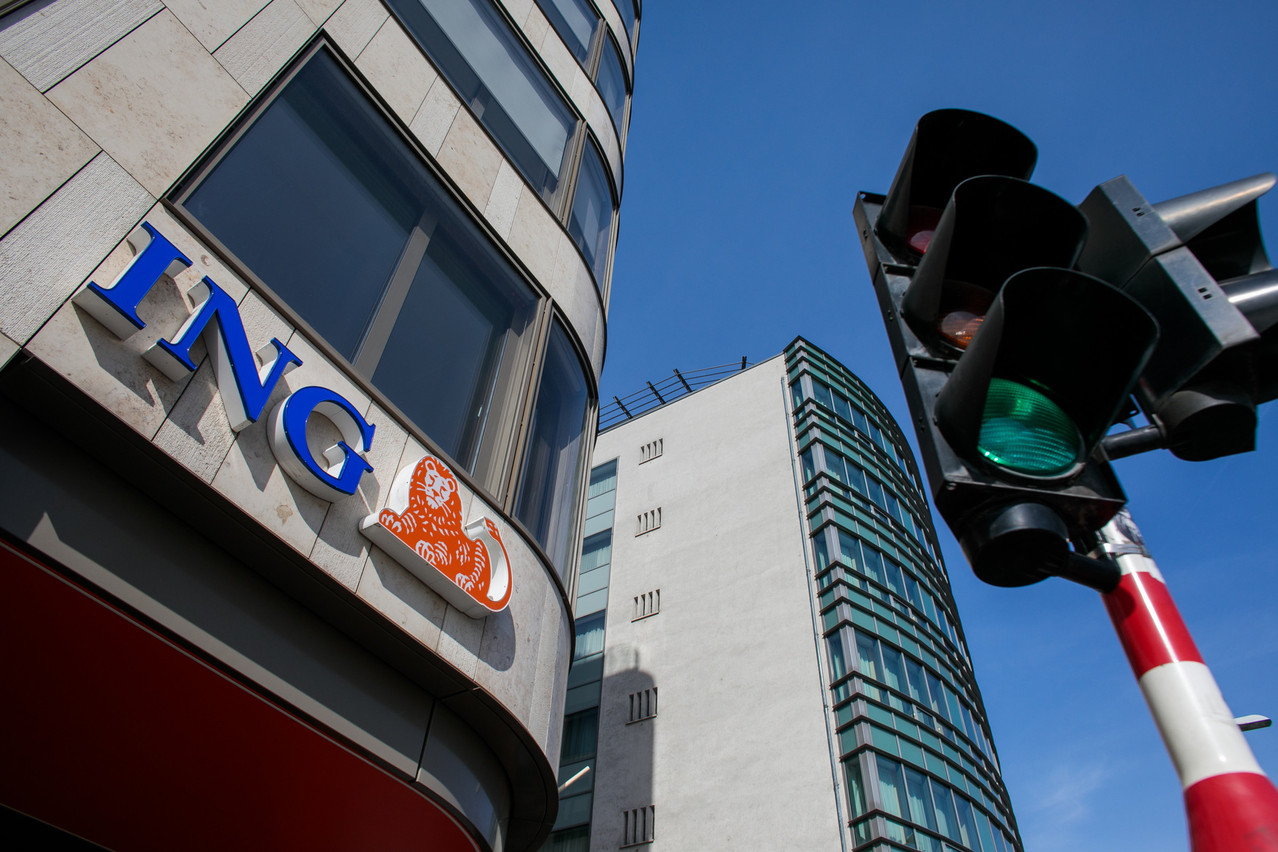Has ING Luxembourg decided to give up its retail business, which includes individuals and SMEs? “Not that I’m aware of,” replied the group’s head of communications in Amsterdam on 27 May.
Five days after screenshots were posted on social media networks by disgruntled customers who had been told that their accounts were going to be closed, the bank’s Luxembourg communications department finally, on 28 May, issued a comment: to wait until the next day for a comment.
Did ING comply with Article 23 of the Payment Accounts Act 2017? ask the Pirate Party’s , and in a parliamentary question. They want to know how many basic payment accounts there are, how the figure has changed over the last five years and whether these customers are also entitled to a credit or debit card. On the screenshots circulating on social networks, customers appear to have been “dismissed” in a manner laid down by law. ING Luxembourg is the only one of the six retail banks in Luxembourg that is not obliged to provide basic payment accounts, according to the CSSF, under the 2017 law.
Is finance minister (CSV) aware of the situation and does he have a plan to make it easier for Luxembourg residents and businesses to open and maintain bank accounts?
“The people concerned now have only two months to deposit their assets with another bank. As many customers are affected by this wave of cancellations, this also has an impact on the waiting time for new accounts to be opened,” comments (LSAP), former deputy prime minister. What do the CSSF and the government think about this, she asks, and how does the government plan to react in order to better protect customers?
“Does the [finance] minister have any information on any refusals by Luxembourg banks to accept new customers whose accounts with ING have been closed?" asks (déi Gréng), member of parliament and former culture minister.
Ambitions reaffirmed recently
“Our aim is to achieve a number one Net Promoter Score ranking in all our retail markets, with a ten-point lead over our main competitors,” wrote the ING Group in its 2022 annual report. “In 2022, ING ranked number one in five of ten retail markets. In these five markets, we have a ten-point lead on the nearest competitor. In Germany and Spain, ING’s scoring improved on last year while Australia, Poland and Romania maintained their strong scores. ING ranks in the top-three in another four markets: the Netherlands and Luxembourg (ranked second) and Italy and Turkey (ranked third).”
“The result before tax for Retail Belgium (which includes ING’s retail activities in Luxembourg) jumped to €661m compared with €223m in 2022,” the group wrote a year later in its 2023 annual report. “The strong increase was mainly due to growth in net interest income and the impact of one-off income items in the year before.”
It added: “We also continued to offer unsecured sustainable consumer loans that can be used for energy-efficiency renovations in Belgium, Luxembourg and Poland, extending this offer to Germany in 2023.”
And: “To offer relevant solutions for all customer segments, our product offering ranges from instant sustainable loans for the self-employed and micro companies, to tailor-made sustainable loans and lease solutions for SMEs and mid-corporates. Products such as sustainable loans, sustainable lease solutions and sustainability improvement loans are now offered in the Netherlands, Belgium, Romania, Poland, Turkey and Luxembourg. A key development in 2023 was a new agreement with the European Investment Bank (EIB) making €600m available for new sustainable loans and leases, at favourable interest rates, to SMEs in Belgium, the Netherlands and Luxembourg to boost sustainability.”
In short, there is nothing to indicate the slightest desire to transform the bank’s business model in an attempt to position itself more strongly, for example in private banking for the ultra-rich. Nor is there any sign of a desire to do away with “phantom” customers or those who are not profitable enough and who have no particular banking or lending activity. In the early 2010s, the bank built its success on the ease of obtaining a bank account and a Visa card online, with very few formalities.
So what is it? A mystery.
Says the 2022 annual report: “In January 2022, a Luxembourg investigating judge informed ING Luxembourg that he intends to instruct the relevant prosecutor to prepare a criminal indictment regarding alleged shortcomings in AML process at ING Luxembourg. Although this matter remains at an early procedural stage and it is currently not possible to determine how this matter will be resolved or the timing of any such resolution, ING does not expect a financial outcome of this matter to have a material effect.”
“The investigation is still ongoing,” confirmed the public prosecutor’s office on the afternoon of 28 May. First reported in March 2022, Luxtimes linked the Luxembourg proceedings with an affair that ended in 2018 when the group reached an agreement with the Dutch authorities. At the time, ING agreed to pay €775m in fines and compensation, acknowledging serious shortcomings in its processes for preventing money laundering and knowing its customers. From 2011 to 2016, “the execution of ING Netherlands’s economic and financial crime prevention policies resulted in the severance of ING’s relationships with thousands of customers. Nevertheless, the shortcomings identified allowed customers to use their bank accounts, among other things, for money laundering practices for several years," says the statement.
ING Luxembourg is a key component of ING’s wholesale and retail banking operations in the region. The bank focuses on providing financial services to individual and corporate customers, with an emphasis on sustainability and digital innovation. In 2023, it employed 939 people. It achieved sales of €608m last year, well ahead of the 2022 figure of €422m. The bank made profits of €349m, almost double the figure for 2022 (+94%).
This article in Paperjam. It has been translated and edited for Delano.
